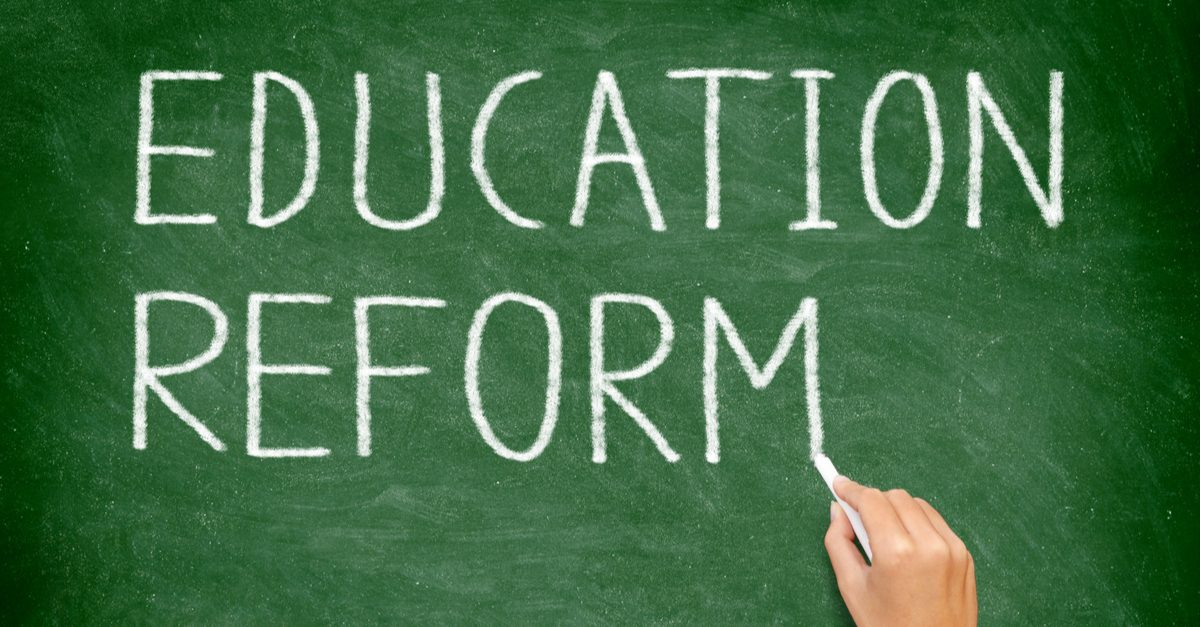
Education reform aims to provide children with a better future through public schooling. Public education has been a debated topic since its inception, and many people strive to continue to make improvements in the way we teach our children.
Education reform can help improve health and wellness along with community wellbeing by providing all people with a quality education. Unfortunately, everyone has different opinions about public education and its current problems. Luckily, many people agree that changes must be made to make learning easier for everyone within a community. Here are things we can do to improve education reform efforts.
Offer Better Jobs for Parents
Children are not responsible for their education; their public schools and parents are. However, teachers can’t do everything. A child’s ability to learn is directly impacted by what happens to them outside of the classroom. So, while we should all invest more in our schools, we should also aim to help families succeed at home. Providing better jobs for parents can strengthen our communities and improve economies.
Children in poverty typically don’t do well in school because they’re hungry and tired, and some may not even have stable homes due to a lack of financial security and parental resources. In addition, poverty creates stress for children, so even though public education is free, a child’s ability to learn and attend school depends on their home life.
Parents now face record unemployment, which can affect any child’s home life whether they’re currently living in poverty or not. While the government discusses raising the minimum wage and increasing the number of jobs available, local communities must also start to find ways to create more jobs for parents.
Improve Home Stability
Children need stable homes with predictable schedules to thrive in school. Unfortunately, millions of children are being forced out of their homes due to their parent’s inability to pay rent or their mortgage. Children can’t focus on school when they don’t have a stable home environment with a roof over their heads. Homelessness affects children more than adults because they’re still developing.
These children are less likely to attend school, making it harder for them to learn and eventually grow up to go to college or get jobs. Local, state, and federal governments can improve home stability by halting foreclosures and evictions where children are involved and providing more options for parents who have lost their jobs due to the recession or the pandemic.
Access to Education for Parents
Children must form a healthy relationship with learning, but they may not succeed if their caregivers don’t have the proper education to help them with schoolwork at home. Parent education can help children develop healthy attitudes about learning and attending school. Parent education can include anything from community centre classes to help parents gain skills and improve their resumes to classes for new parents about prenatal care and other important parenting topics.
Free Health Care for Children
Children with medical issues will have a difficult time learning, especially if their hearing and vision are impacted, or they’re in pain. When children can’t get the medical care they need because their parents either don’t have insurance or their parents have bad health insurance, they can’t be expected to make it to school every day or learn properly. Children are at a crucial time when learning is most important, but many of them are left without health insurance because of expensive monthly premiums and copays.
Improve Nutrition
Food insecurity is a major problem in America, which is shocking because we seem to have an abundance of food. However, around ten percent of children in the U.S. suffer from food insecurity and aren’t getting enough to eat. With more parents on food stamps due to unemployment, many families still cannot afford to get enough food based on their daily allowances. Schools have also cut back on breakfast and lunch programs even though studies show feeding students before exams results in higher scores.
Instead of cutting back on these school programs, communities must work together to find ways to expand them so no child has to go hungry while they’re in school.
Smaller Class Sizes
Small class sizes can help children learn because the teachers get more time with each individual student. Unfortunately, many students are subjected to class sizes over thirty students, so there’s no time for teachers to meet with children individually to help them learn. Smaller class sizes may require additional buildings and teachers, but improving children’s public education is well worth it.
Extend After-School Programs
Many parents have jobs that require them to pick up their children from school hours after school ends, which means there’s not enough time in the day for parents to help their children with homework. However, with after-school programs, volunteers can work with students to help improve their education by helping them with their homework and providing free babysitting for younger children. After-school programs can also help parents save money because they won’t have to pay for a babysitter or another paid program. After-school programs can entail tutoring, a place for them to play, or even CPR classes to learn!
Don’t Forget About Higher Ed
Many children, no matter their parents’ financial situations, move on from public schools to higher education, including local colleges, trade schools, and universities. However, students must pay thousands of dollars every semester to attend. There aren’t enough scholarships or federal programs for every student, so while you may not be able to haggle down the price of credit hours, it’s always best not to forget the substantial debt college graduates carry with them for years.
Vote
Voting is a great way to make your opinion heard by taking steps towards education reform. When it’s time to elect new officials, always ensure you know everything about their stance on education reform so you can put someone in charge who can make a real difference.
Final Thoughts
Creating reform doesn’t mean spending time emailing your government officials or writing letters to schools. Instead, you can take small steps to stay involved in your community, including volunteering for after-school programs designed to help kids learn.

Article By Julia Olivas
Julia Olivas graduated from San Francisco State University with her B.A. in Communication Studies. She is a contributing writer at 365businesstips.com where she loves sharing her passion for digital marketing and content creation. Outside of writing, she loves cooking, reading, making art, and her pup Ruby.
Visit IoSCM Choices to find out more and access a wide-range of age appropriate resources to help educate the next generation of workforce on real, viable, and exciting career opportunities.

